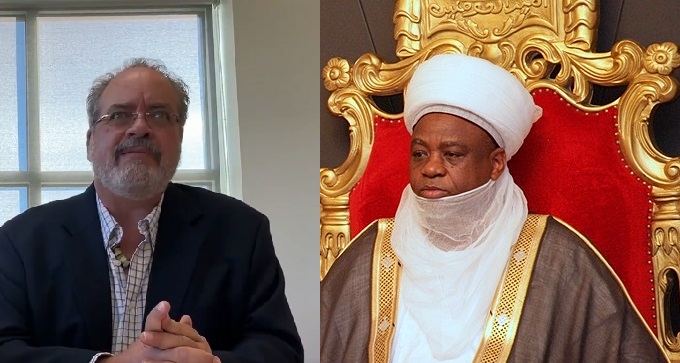
Ex‑US Mayor and Sultan of Sokoto Clash Over Allegations of Christian Genocide
Former Texas mayor accuses the Sultan of Sokoto of complicity in widespread killings of Christians in northern Nigeria; Sultan dismisses the claim as false and divisive.
Washington D.C. – November 1, 2025
The former mayor of Blanco City, Texas, United States, Mike Arnold, founder of the advocacy group Africa Arise International, has thrown down the gauntlet at Alhaji Sa’ad Abubakar III, the Sultanate Council of Sokoto leader and Chairman of the Northern Traditional Rulers’ Council (NTRC), accusing him of being complicit in what he describes as “jihad‑genocide” against Nigerian Christians.
Arnold, in a recent statement, challenged the Sultan to prove that he is not a “prime suspect” in the mass killings, pointing to rising casualty figures among Christian communities in the north and demanding transparency from traditional leadership.
In strongly worded posts on social media, Arnold pressed the Sultan to break his silence and provide clear evidence of his non‑involvement in the mass killings and resource looting in parts of northern Nigeria
speaking with Saturday PUNCH, Arnold cited alleged intelligence pointing to systemic looting of mineral resources of over $9bn a year in the Sultan’s domain, and questioned the monarch’s seeming inactivity amid the wave of attacks targeting churches, Christian farmers and displaced persons. Arnold warns that the tribunal of history would not spare those who engage in the slaughter of their neighbours.
Responding through his council, the Sultan dismissed the accusations as “baseless and unworthy of a reply,” stating that the Federal Government and the National Assembly have already addressed the issue of religious killings in northern Nigeria, and that further comment would only amplify unfounded narratives.
The statement claims that the council is dedicated to peace, religious coexistence and national unity, and urged Nigerians to reject divisive rhetoric that pits communities against one another.
The dispute, which comes amid renewed global scrutiny over Nigeria’s security and religious‑freedom records, emphasizing the mounting sensitivity around allegations of targeted violence against Christians.
While the government claims that the country is grappling with banditry, herder‑farmer conflicts and terrorism rather than genocide, Arnold insisted the facts point to coordinated attack patterns that demand a full investigation, not just denial.
In Nigeria’s Middle Belt and northern states, Christian communities have cited recurring attacks on their settlements, destruction of churches and displacement by Fulani terrorist groups.
Arnold used these reported incidents as the basis for his call to the Sultan, a Fulani man, and for action by both international and domestic accountability systems.
Whether this clash leads to formal inquiries, sanctions or policy shifts remains to be seen. However, it raises questions about the role of traditional authorities in conflict‑affected regions of Nigeria.